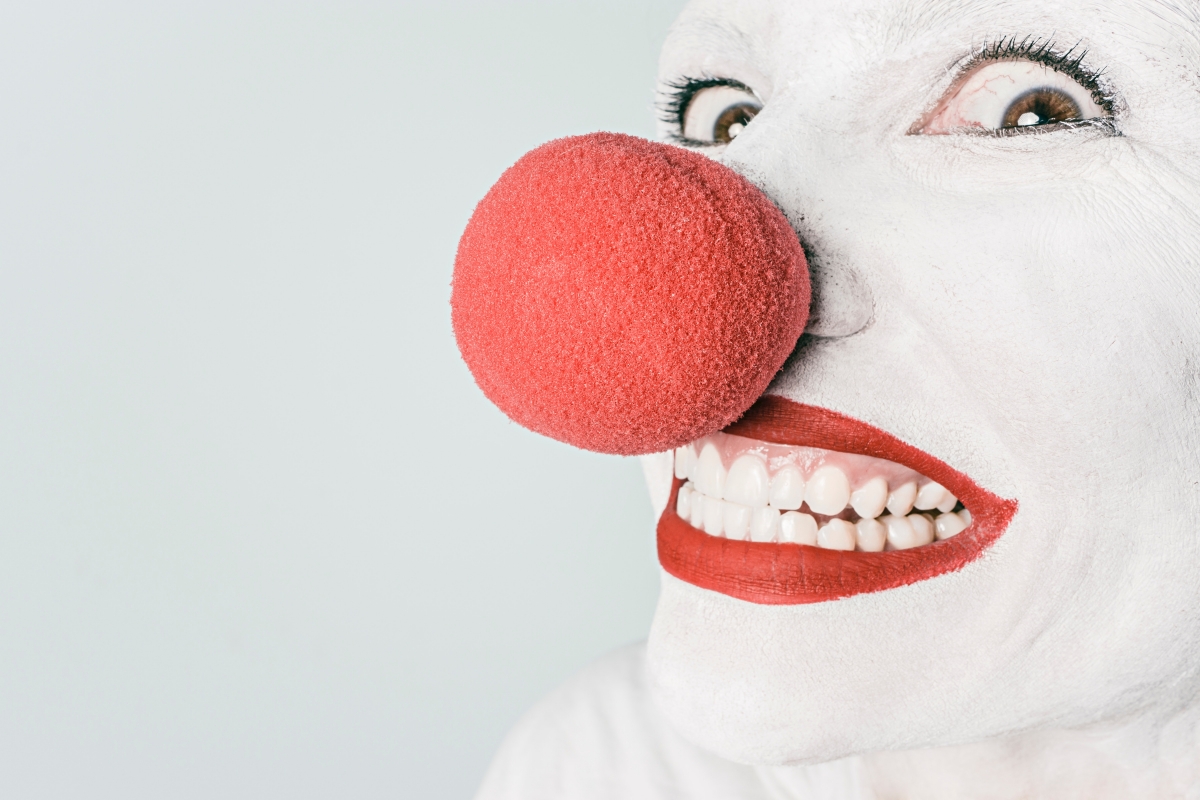Darkness All Around: Humor, Personality, and Creativity
Dark humor [1] is harsh and horrendous humor that makes fun of taboo or serious subjects (e.g., jokes on otherwise traumatizing things/events such as dead babies, the holocaust, terminal illnesses, etc). As can be expected, these are often disputed topics within the broader gamut of humor. Some laugh heartily at the expense of others, while some may find such insinuations extremely offensive. The fact that people react differently to such jokes make individual differences within humor styles apparent. For instance, affiliative humor, i.e., witty, cheerful, and harmless humor aimed only at reducing tension, is positively associated with openness and extraversion. Self-enhancing humor is directly related to agreeableness, while self-defeating humor is linked with neuroticism [2]. Thus, humor serves multiple functions - as a social lubricant, to release tension, and to amuse. But in the internet age, where the generation and consumption of dark humor are rampant, what functions could this brand of humor serve?
Researchers have identified unique links between the Dark Tetrad [3] of personality and humor styles. These traits, including psychopathy, Machiavellianism, narcissism, and sadism, are characterized by callousness, manipulativeness, self-indulgence, and seeking pleasure in tormenting others. Individuals high on these dark traits often display negative humor styles (like aggressive and self-defeating) as compared to positive ones [4]. Thus, dark humor may fulfil the tendencies of such people to benefit at the cost of others, which, in this case, would be via laughing at socially inappropriate content. The tendency to laugh at others’ sufferings is called katagelasticism [5], and research has indicated an association between katagelasticism and psychopathic traits [6]. Such individuals may experience a sense of superiority by laughing at others’ expense, thereby promoting self-enhancement as an adaptive strategy to signal their ability to cope better than others.
Therefore, personality and cognitive correlates of dark humor are numerous, particularly with respect to its comprehension and consumption. But what about the creators of such humor? Those with psychopathic tendencies are found to be wittier as compared to individuals lower on psychopathy [7]. Dark humor appreciation is also associated with greater intelligence [8]. Dark humor creation tendencies, may therefore stem from such increased intellectual abilities, lack of concern for another's well-being, and lower inhibitory mechanisms to keep inappropriateness in check. When dark humorists (think Louis CK or Daniel Tosh) make jokes that overstep the contextual boundaries of appropriateness, such apathy might be at work.
The generation of dark humor brings us to a related area of negative creativity, as comedy and jokes are a form of creative output. Negative creativity is when individuals use creative potential to come up with socially undesirable ideas, which may not deliberately harm others; it is essentially how individuals come up with good ideas to do bad things. The “bad thing” in the case of comedy is coming up with a way to talk about something serious, perhaps through a dark joke. Further, it may be little coincidence that individuals who are likely to be negatively creative are the same ones who enjoy dark humor - the ones along the Dark Tetrad of personality [9].
Perhaps then, dark humor, dark personality, and dark creativity share underlying cognitive and behavioral mechanisms. Talking about the dark side of these concepts begs the mention of morality and ethical beliefs [10]. Are individuals who come up with and/or appreciate dark humor necessarily “less” moral than those who enjoy more sanitized humor? The ethics of humor has been debated extensively and often ends up in questions regarding the value generated by such humor. This is because all humor eventually aims to create value for the recipient, and of course, this is subjective value that changes across recipients. In the broader context then, individuals would be okay with making prejudice-laden jokes against their hated outgroups but may find such humor distasteful if targeted at their own.
These links may help question whether individuals who display dark personality traits, appreciate dark humor, and have a creative side are more likely to come up with terribly offensive, yet hilarious jokes. While some humor is indeed linguistically clever, it may not always be discerning. When Louis CK made targeted jokes about the Parkland shooting survivors, he directly mocked individuals who were actively processing the trauma in real time. In such an instance, the moral compass of a person also comes into play in trying to understand the decision of actually performing such a joke after generating it. Future research, then, should focus on questioning the moral beliefs held by such an individual, such that no topic or theme is sacrosanct and everything can be made fun of, regardless of whether it is “too soon.” [11]
So where does one draw the line? If one must joke about controversial topics, is there a more acceptable way? One approach to making controversial topics innocuous would be to embed them in a more socially acceptable context, i.e., misattribute the punchline to something more subtle. In Hannah Gadsby’s Netflix stand-up special Nanette, she discusses a letter addressed to her on Facebook, where a member of the LGBTQ+ community told her that she owes it to the community to come out as transgender. Despite being a part of the community, Hannah does not identify as transgender, which led her to joke - “I don’t identify as transgender. I don’t. I mean, I’m clearly ‘gender not normal,’ but… I don’t think even lesbian is the right identity fit for me, I really don’t. I may as well come out now. I identify… as tired. I’m just tired.” Here, she took a sensitive topic and put a socially acceptable spin to it, such that it would not undermine those who might be undergoing an identity crisis. However, such an approach may not be conducive for all dark humorists. Individuals higher on the dark personality spectrum tend to depersonalize others, which makes it easier for them to write crass jokes about certain communities. Moreover, those with sadistic inclinations are vicariously aroused by mocking others, a trait that may predominantly manifest in situations where laughter is generated at the cost of others (a prominent characteristic of online trolls).
Through the intertwining of personality, morality, and creativity, the underpinnings of dark humor generation and consumption can be better understood - and this is no laughing matter.
References
[1] Marlènee, A., & Piolat, A. (2012). Influence of gender on judgment of dark and nondark humor. Individual Differences Research, 10(May), 211–222.
[2] Martin, R. A., Puhlik-Doris, P., Larsen, G., Gray, J., & Weir, K. (2003). Individual Differences in Uses of Humor and Their Relation to Psychological Well-Being: Development of the Humor Styles Questionnaire. Journal of Research in Personality, 37, 48-75. http://dx.doi.org/10.1016/S0092-6566(02)00534-2
[3] Međedović, J., &; Petrović, B. (2015). The Dark Tetrad. Journal of Individual Differences, 36(4), 228–236. https://doi.org/10.1027/1614-0001/a000179
[4] Veselka, L., Schermer, J. A., Martin, R. A., & Vernon, P. A. (2010). Relations between humor styles and the Dark Triad traits of personality. Personality and Individual Differences, 48(6), 772–774. https://doi.org/10.1016/j.paid.2010.01.017
[5, 6, 7] Proyer, R. T., Flisch, R., Tschupp, S., Platt, T., &; Ruch, W. (2012). How does psychopathy relate to humor and laughter? Dispositions toward ridicule and being laughed at, the sense of humor, and psychopathic personality traits. International Journal of Law and Psychiatry, 35(4), 263–268. https://doi.org/10.1016/j.ijlp.2012.04.007
[7] Willinger, U., Hergovich, A., Schmoeger, M., Deckert, M., Stoettner, S., Bunda, I., … Auff, E. (2017). Cognitive and emotional demands of black humour processing: the role of intelligence, aggressiveness and mood. Cognitive Processing, 18(2), 159–167. https://doi.org/10.1007/s10339-016-0789-y
[9] Kapoor, H. (2015). The Creative Side of the Dark Triad. Creativity Research Journal, 27(1), 58–67. https://doi.org/10.1080/10400419.2014.961775
[10] Karandikar, S., Kapoor, H., Fernandes, S., & Jonason, P. K. (2018). Predicting moral decision-making with dark personalities and moral values. Personality and Individual Differences. https://doi.org/10.1016/j.paid.2018.03.048
[11] McGraw, A. P., Williams, L. E., & Warren, C. (2014). The Rise and Fall of Humor: Psychological Distance Modulates Humorous Responses to Tragedy. Social Psychological and Personality Science, 5(5), 566–572. https://doi.org/10.1177/1948550613515006




